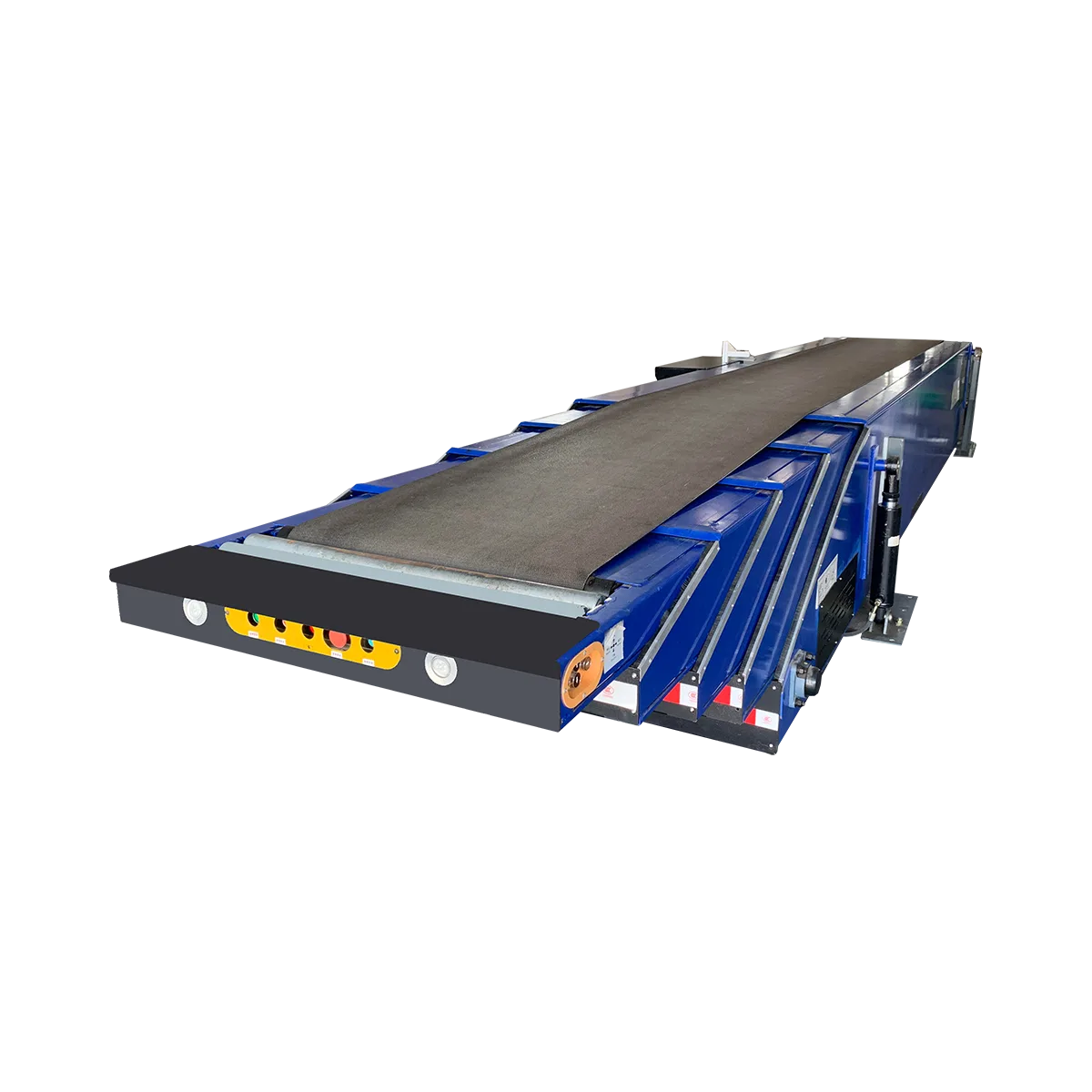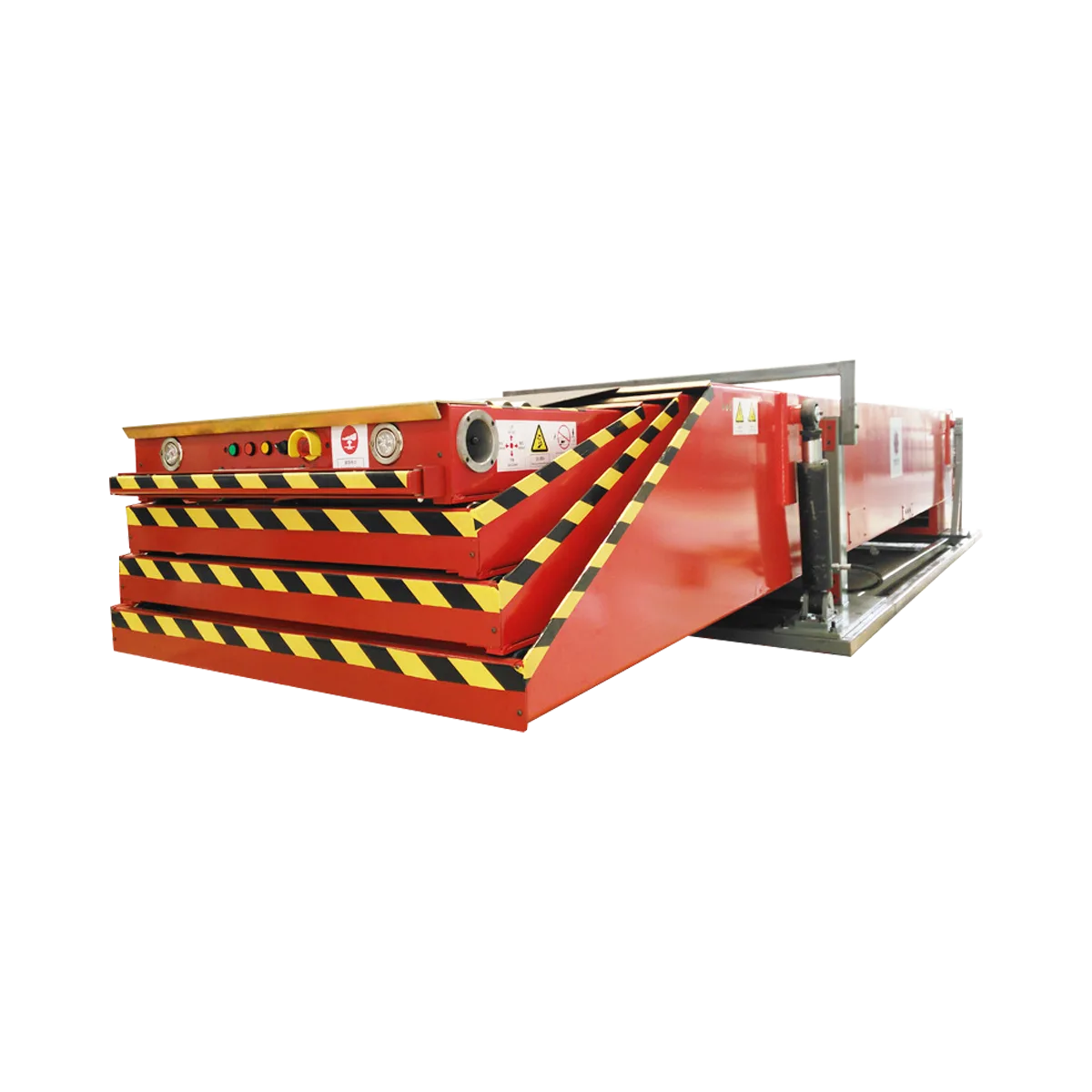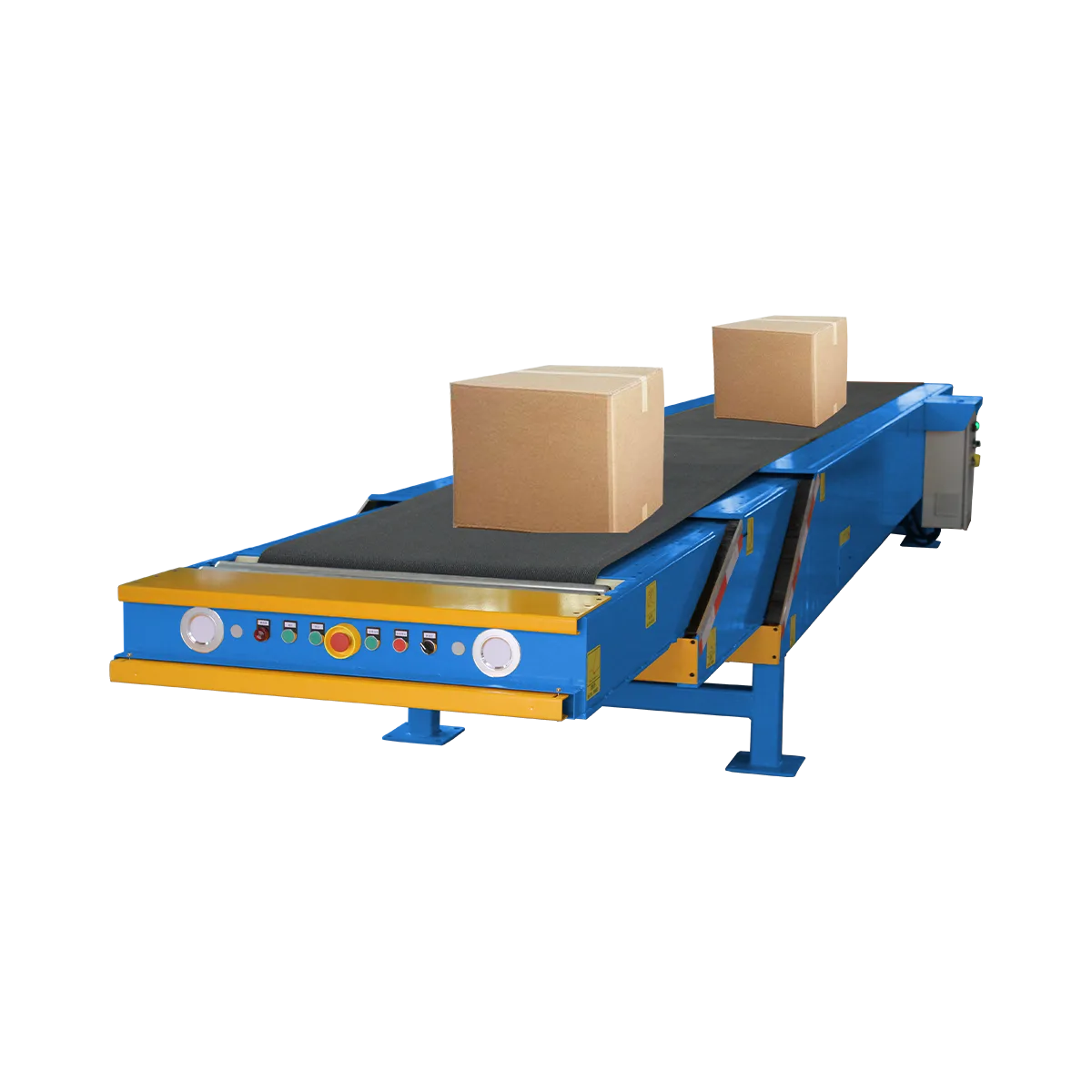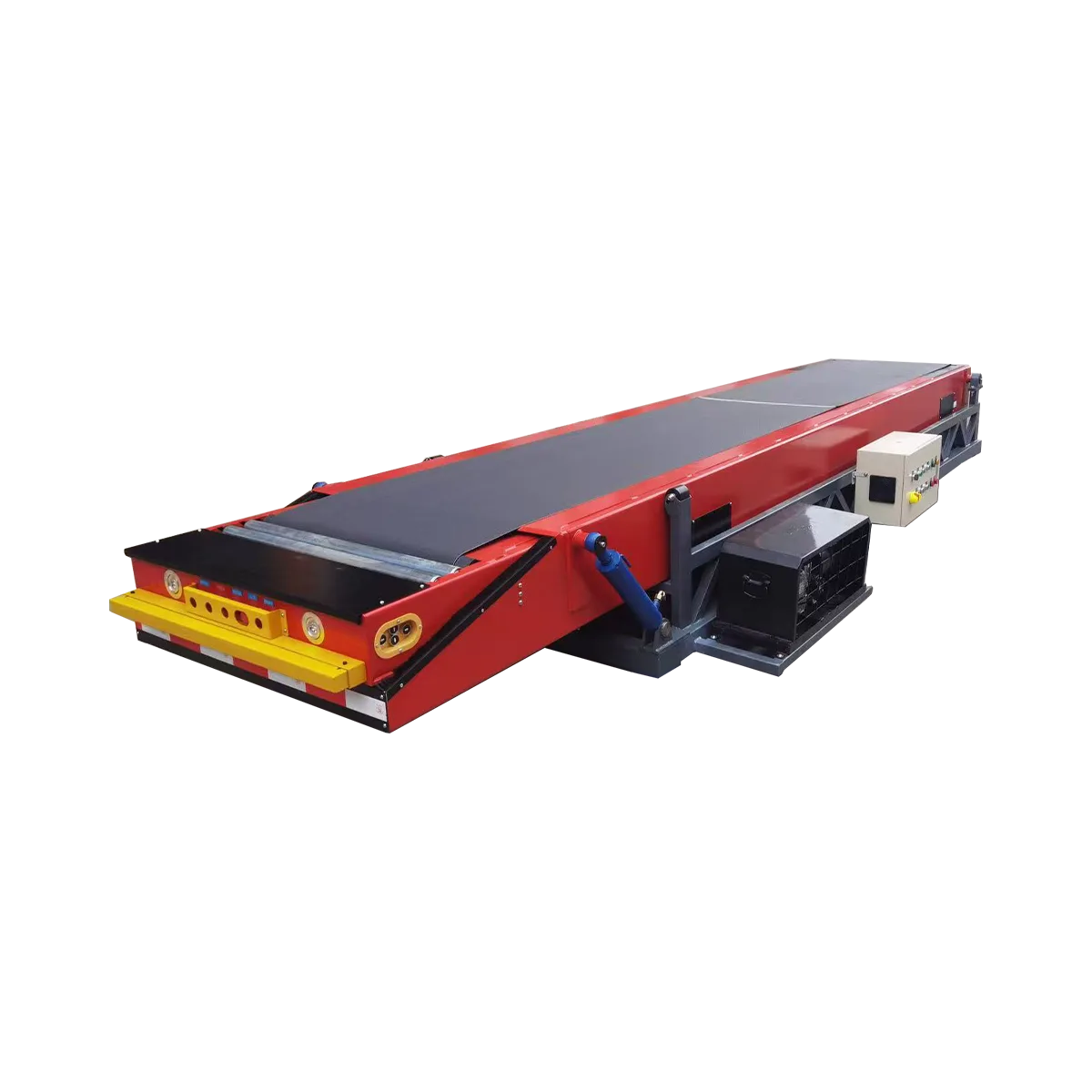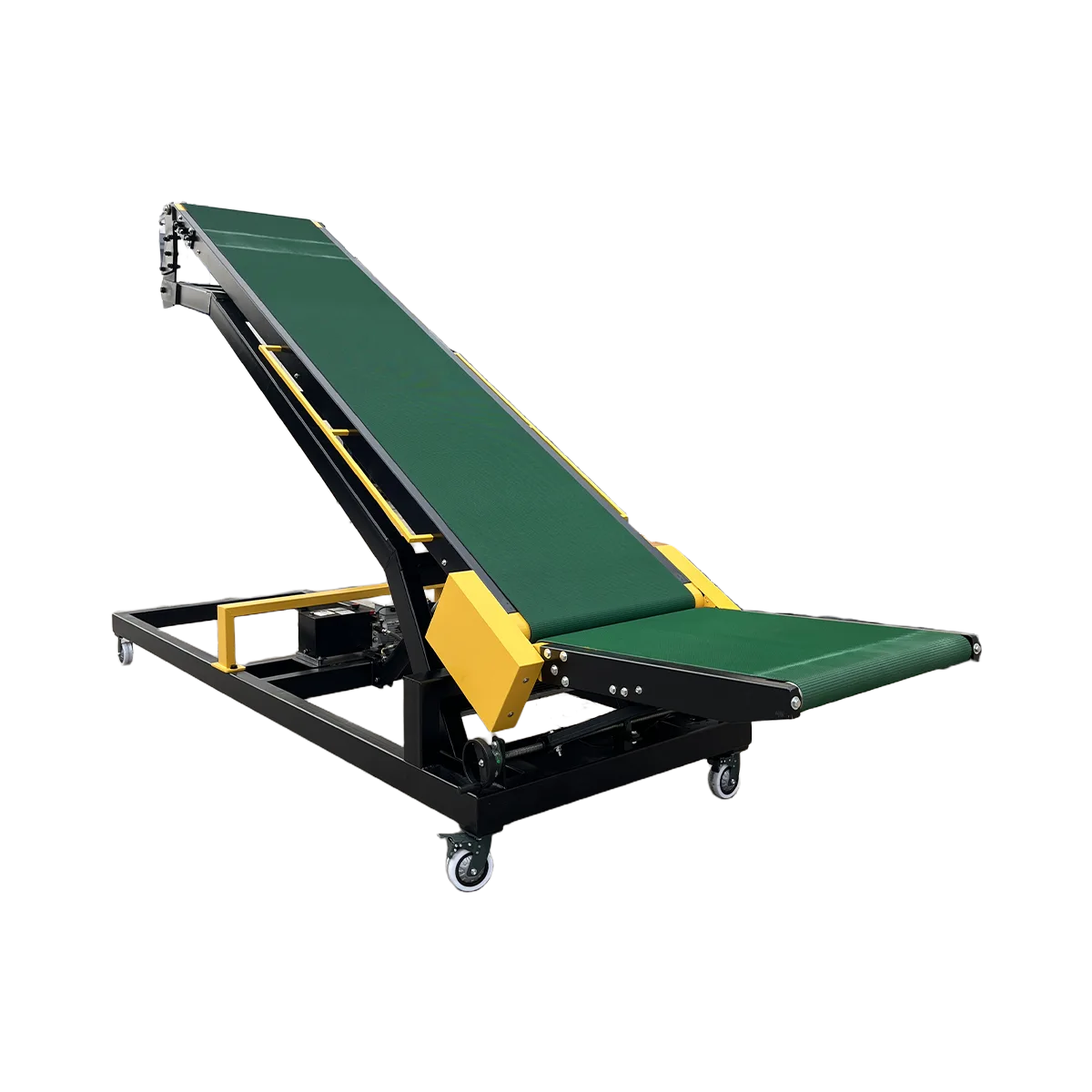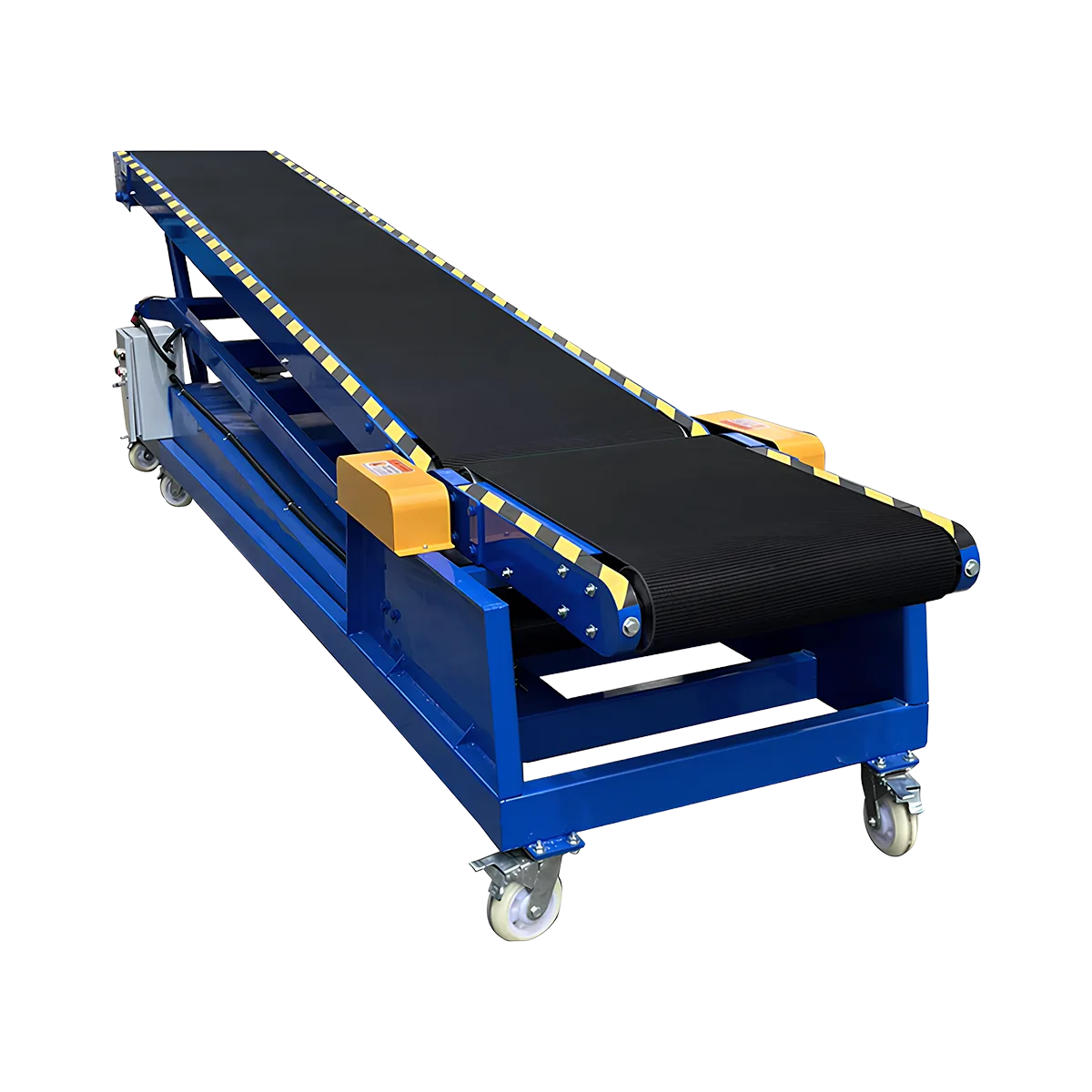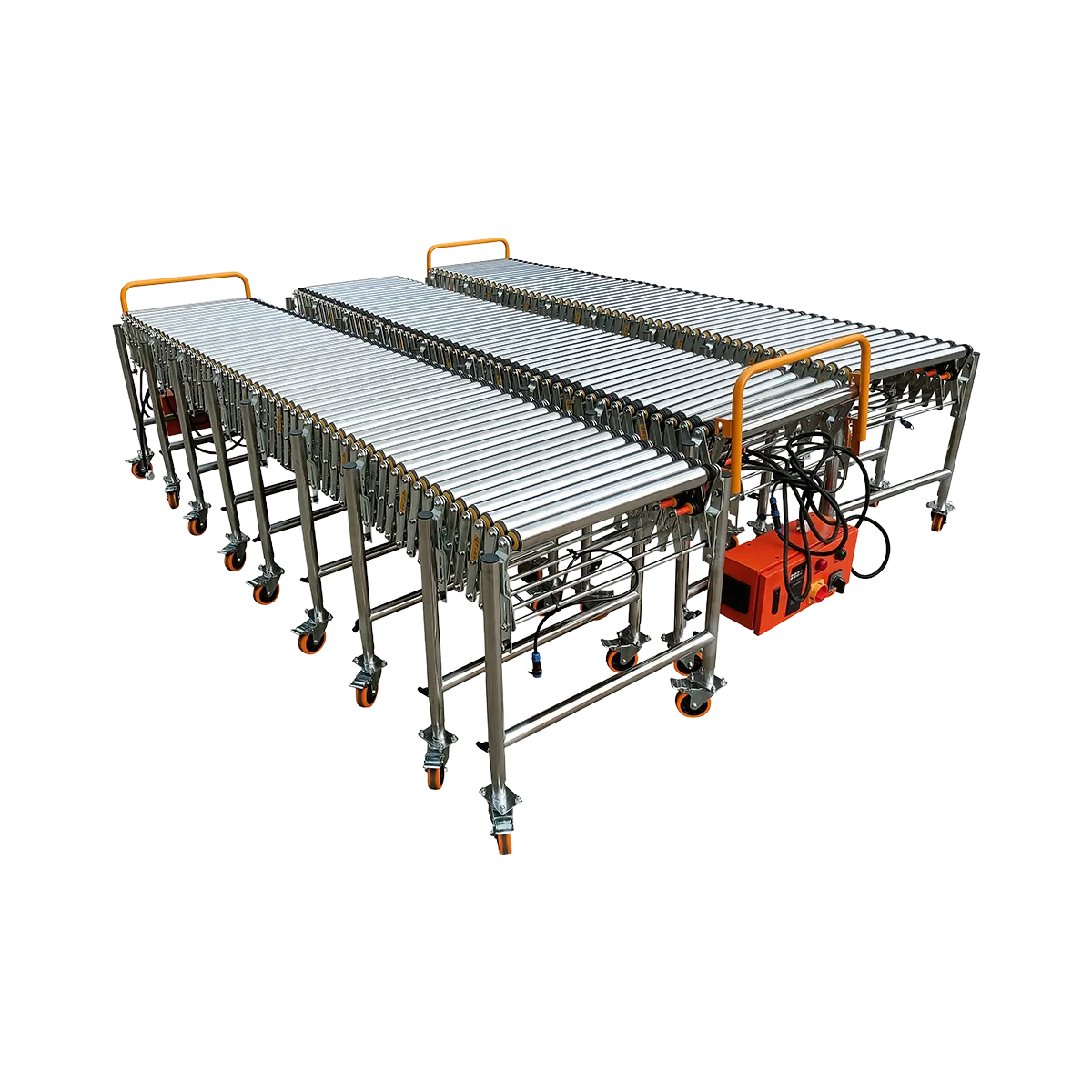Container Loading Conveyor
The container loading conveyor bridges that gap. It simplifies bulk material handling, ensures continuous flow, and protects personnel from strain.
Related Products
- TeleScopic Conveyor – 5 SectionsCollapsed LengthExtended LengthLoad Capacity
60 kg/m
Applicable GoodsFlat-bottomed Goods
Bagged Goods
- TeleScopic Conveyor – 4 SectionsCollapsed LengthExtended LengthLoad Capacity
60 kg/m
Applicable GoodsFlat-bottomed Goods
Bagged Goods
- TeleScopic Conveyor – 3 SectionsCollapsed LengthExtended LengthLoad Capacity
60 kg/m
Applicable GoodsFlat-bottomed Goods
Bagged Goods
- TeleScopic Conveyor – 2 SectionsCollapsed LengthExtended LengthLoad Capacity
60 kg/m
Applicable GoodsFlat-bottomed Goods
Bagged Goods
- Hydraulic Conveyor – Large – 7900 mm LengthCollapsed LengthExtended LengthLoad Capacity
80 kg/m
Applicable GoodsFlat-bottomed Goods
Bagged Goods
- Hydraulic Conveyor – Medium – 7000 mm LengthCollapsed LengthExtended LengthLoad Capacity
80 kg/m
Applicable GoodsFlat-bottomed Goods
Bagged Goods
- Powered Roller Conveyor – Multi-wedge Belt Driven – 2000 mm/SectionCollapsed Length
700 mm
Extended Length2000 mm
Load Capacity100 kg/m
Applicable GoodsFlat-bottomed Goods
Every second counts in loading bays. Whether dealing with 20-foot containers or 40-foot trailers, bottlenecks in manual loading reduce throughput and raise labor costs. The container loading conveyor bridges that gap. It simplifies bulk material handling, ensures continuous flow, and protects personnel from strain. Combining intelligent design with robust components, this conveyor system offers a versatile solution adaptable to a wide range of industries including logistics, e-commerce, and manufacturing. The result? Reduced turnaround time and better safety margins.


Enhanced Mobility and Telescopic Design
Modern warehousing needs flexibility. Our telescopic conveyor integrates retractable sections that extend deep into the container, eliminating the need for workers to enter it physically. This reduces the risk of injury and speeds up the loading of cartons, bags, or irregular parcels.
These features stand out:
- Hydraulic height adjustment for multiple dock heights
- Durable powered rubber rollers offering consistent traction
- Movable casters for swift relocation across bays
A telescopic conveyor’s adaptability makes it perfect for both temporary setups and permanent docks.
Powered Rubber Rollers: Gentle but Firm
Fragile goods? Uneven packages? The Powered Rubber Roller Conveyor handles them with ease. Unlike steel rollers, rubber surfaces reduce impact and noise. They offer better grip and less vibration.


Compare core traits in this table:
| Feature | Rubber Rollers | Steel Rollers |
| Noise Level | Low | Moderate to High |
| Item Protection | Excellent | Fair |
| Maintenance Frequency | Low | Moderate |
| Slip Resistance | High | Medium |
This material choice matters most for items like electronics, glass, or retail products packed in soft-sided boxes.
Hydraulic Conveyor Functionality
Not every loading dock shares the same height or surface condition. That’s where the Hydraulic Conveyor proves critical. Its built-in hydraulic lifting system adjusts the conveyor height smoothly, aligning it with different vehicles or dock levels.


Applications:
- Multi-dock terminals
- Truck-to-warehouse transfers
- Scenarios involving heavy-duty items
Features:
- Reinforced frame resists flexing under load
- Anti-slip platform guarantees secure item placement
- Operable via foot pedal or control panel
Using hydraulics for vertical movement avoids time-consuming manual repositioning. Your team stays focused, not fatigued.
Key Advantages of a Container Loading Conveyor
Let’s explore specific benefits with context:
- Time Reduction: Manual loading might take 2–3 hours per container. With a conveyor, it’s cut by over 40%.
- Lower Injury Risk: Reduces repetitive lifting and carrying inside hot metal containers.
- Labor Optimization: Allows fewer workers to handle more cargo with less effort.
- Cargo Safety: Smooth movement ensures boxes stay intact, reducing customer complaints.
- Energy Efficiency: Modern drives reduce power consumption while maintaining output.
Many businesses overlook cumulative time losses. Investing in a container conveyor reclaims those hours consistently.
What to Look for When Choosing a Container Loading Conveyor
Not all conveyors are created equal. Consider these evaluation points before purchasing:
| Criteria | Why It Matters |
| Load Capacity | Must support your heaviest packages reliably |
| Length and Reach | Should match or exceed container depth |
| Power Source | Electric, hydraulic, or combined mechanisms |
| Material of Rollers | Impacts grip, longevity, and item safety |
| Adjustability | Ideal for facilities with variable height bays |
| Portability | Crucial for multi-bay or mobile loading needs |
Bonus Tip: A hybrid system that combines powered rubber rollers with telescopic arms offers unmatched versatility for mixed cargo environments.


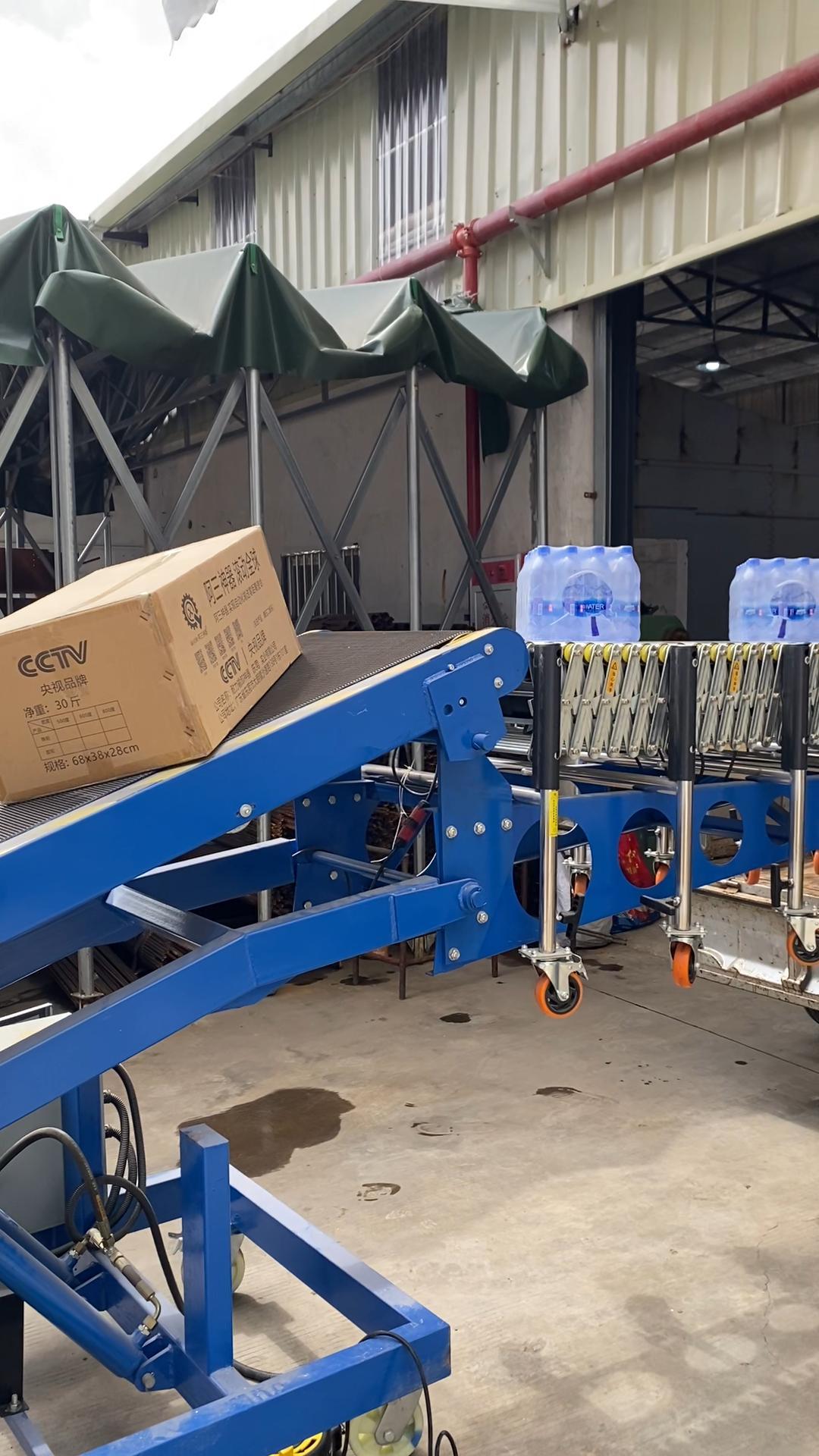

Practical Use Cases Across Industries
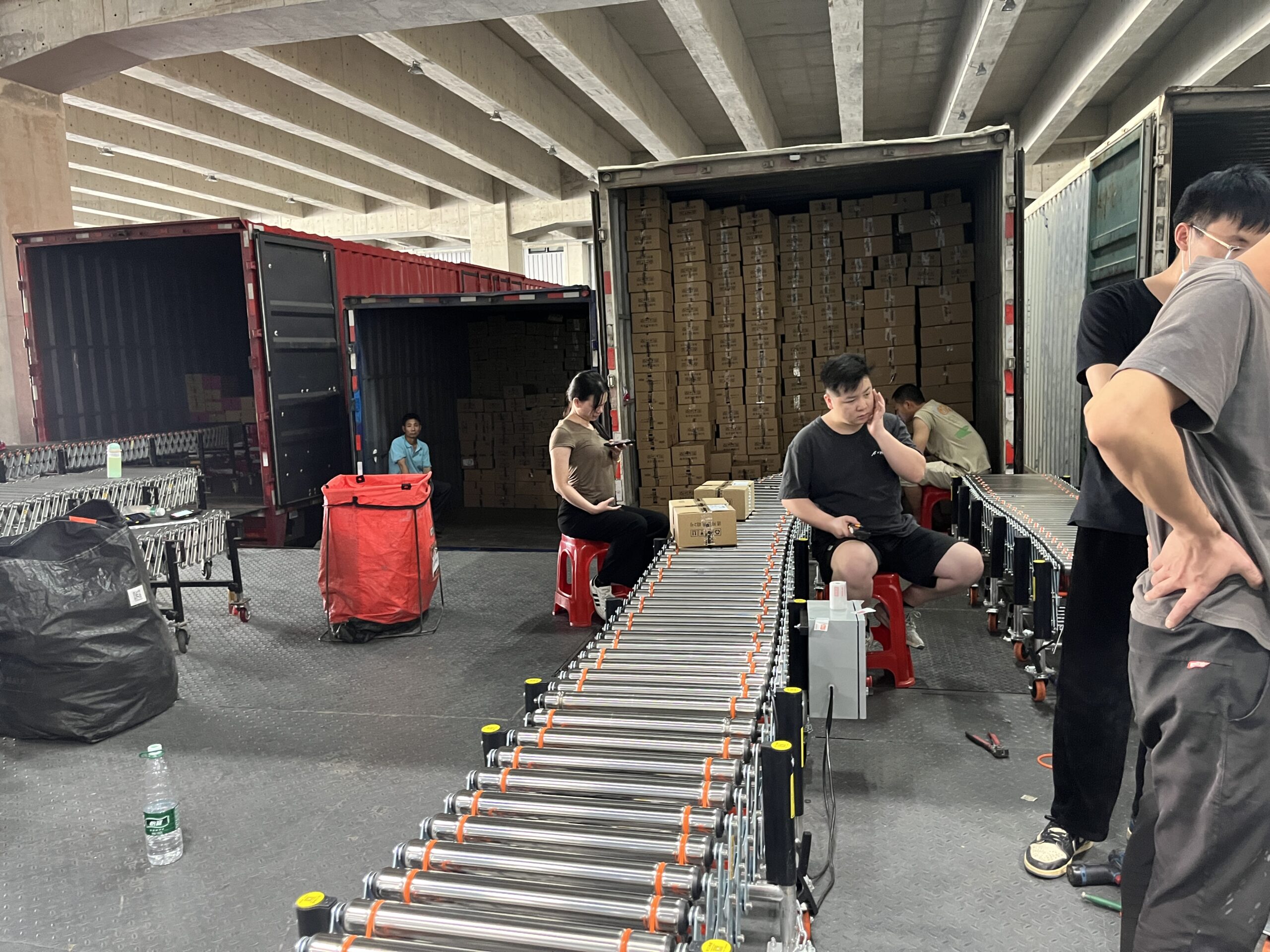

Industries employing container loading conveyors span various sectors:
- 3PL Warehousing: Rapid in-out processes for bulk orders
- E-commerce Fulfillment: Seasonal peaks demand speed
- Apparel Distribution: Delicate fabrics need gentle handling
- Food & Beverage: Ensures cleanliness with rubber surfaces
- Heavy Machinery: Hydraulic models bear weight effortlessly
When speed meets care, damage claims decrease. Clients notice.
Real-World Results: Performance Metrics
One logistics firm reported:
- 55% faster loading compared to forklifts
- 70% lower strain-related injuries
- ROI achieved in 9 months after deployment
Data from warehouse analytics supports consistent conveyor use as a key KPI booster.
Maintenance Essentials
Conveyors, like any machinery, require upkeep. But simplicity in design ensures minimal downtime.
Maintenance Checklist:
- Weekly roller inspection for debris or damage
- Monthly hydraulic oil level check
- Quarterly motor performance audit
- Annual rubber surface integrity review
Training operators on early fault detection prevents full-system halts. Prevention beats repair.
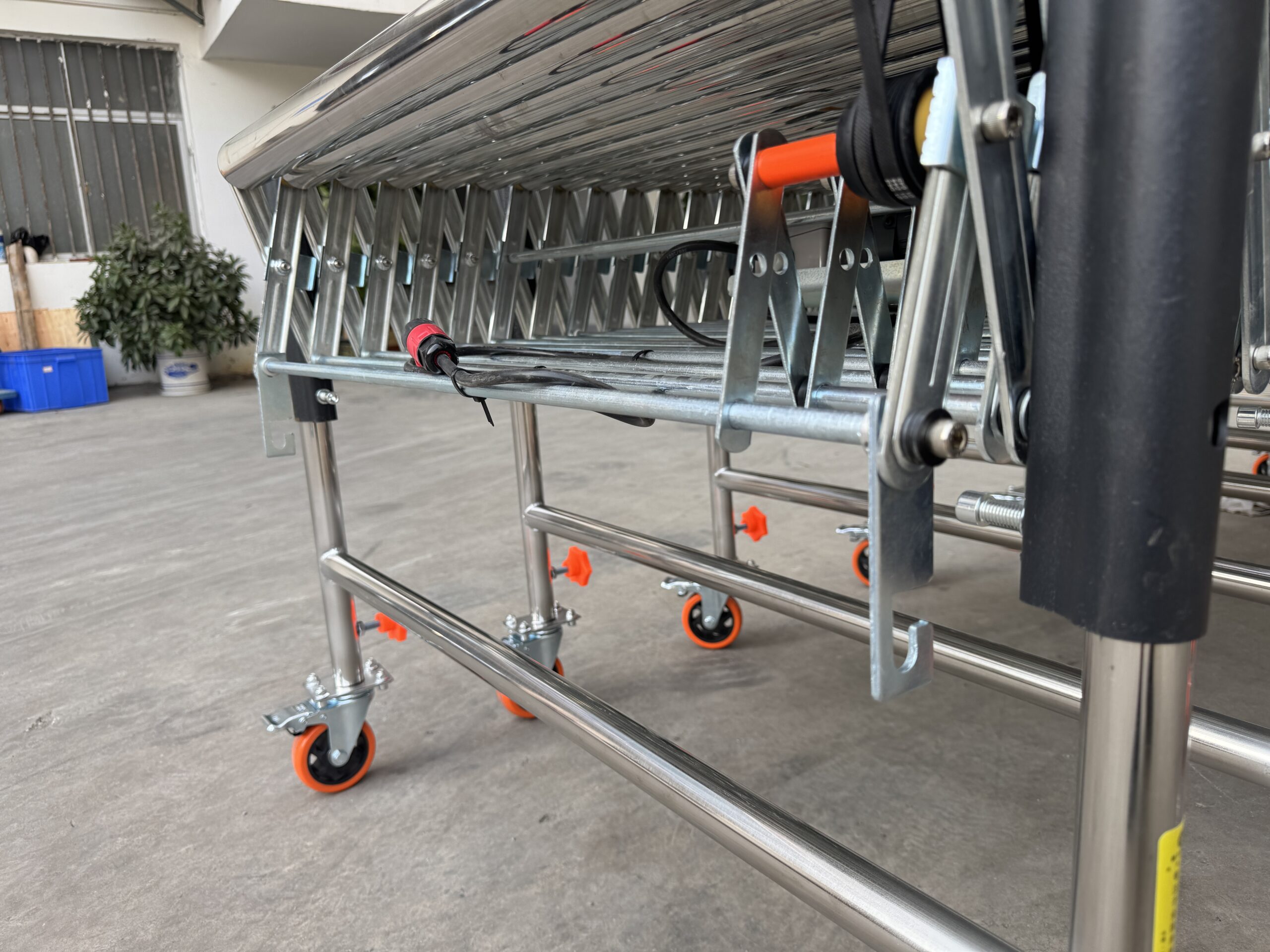

Can This Be Customized?
Absolutely. Different clients need different specs. You might want:
- Extended reach telescopic units
- Additional side guides for narrow packages
- Variable speed control for timed dispatch
We’ve designed systems for 5-meter docks and 18-meter mobile trailers alike. Reach out with your challenge—our engineers will solve it.
FAQs
What’s the max reach of your telescopic conveyor?
Up to 18 meters fully extended depending on the model.
Can this handle irregular shaped packages?
Yes, especially with powered rubber rollers which offer better surface friction.
Is it suitable for indoor and outdoor use?
Yes, with weather-protected configurations available.
How quickly can it be deployed?
Most models are plug-and-play within 24 hours after delivery.
Final Thoughts
The container loading conveyor isn’t just equipment—it’s a strategic advantage. It speeds up logistics, enhances safety, and allows your team to focus on productivity. Whether you’re upgrading a single dock or outfitting a new distribution center, make this system part of your operations toolkit.
To learn more or request a tailored solution, connect with our specialists today. Your containers—and your team—will thank you.
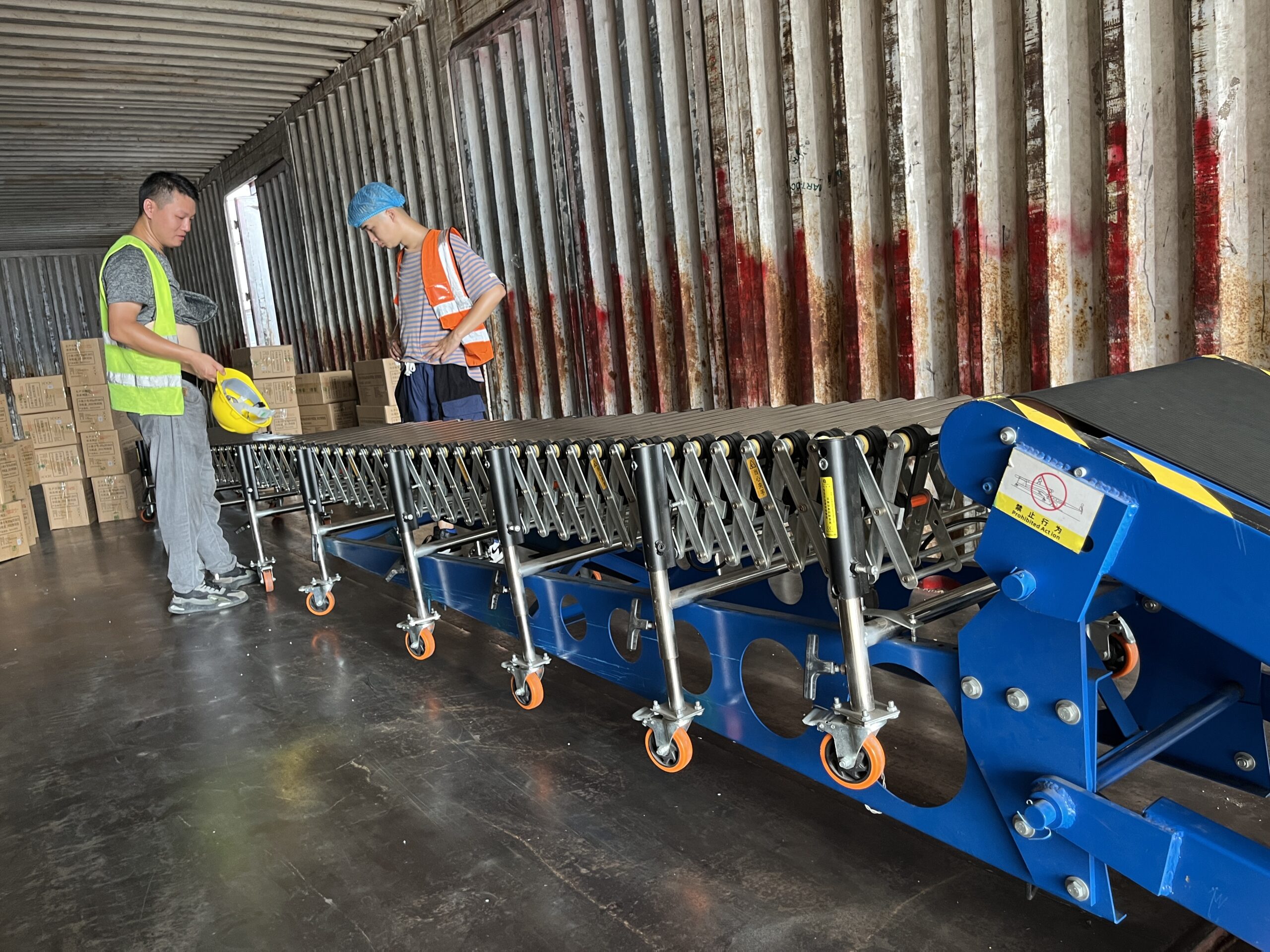

Table of Contents
Recent Posts
Optimize hardware store logistics with the right building supply conveyor systems. Our guide to tool distribution systems enhances retail warehouse automation for efficient operations.
Optimize your medical supply logistics with efficient gravity conveyor systems. Learn how to safely handle healthcare products while improving your hospital supply chain operations.
Discover how a sports equipment conveyor system can streamline your athletic gear logistics. Flexible conveyor solutions for all shapes and sizes of sporting goods.

